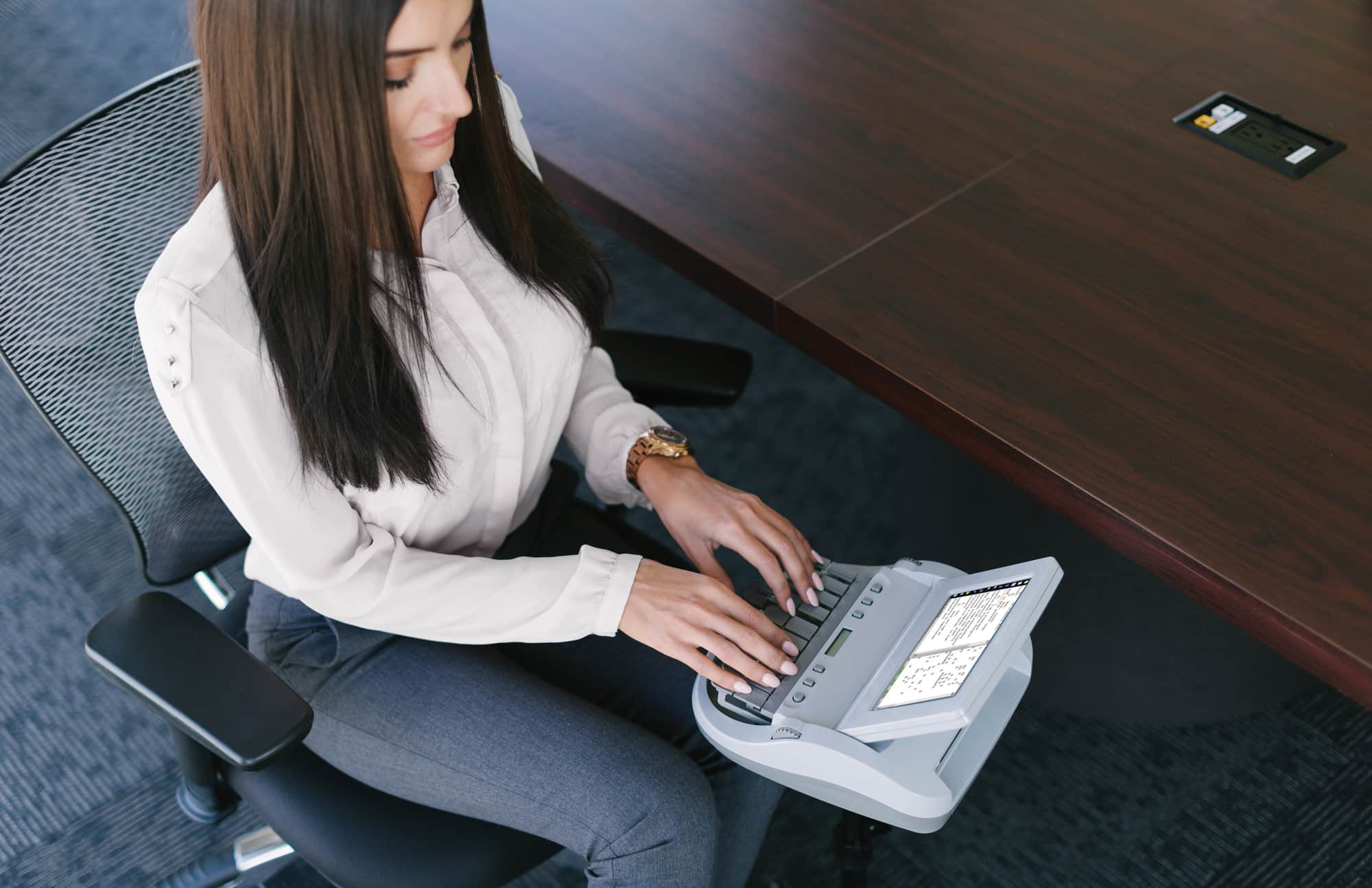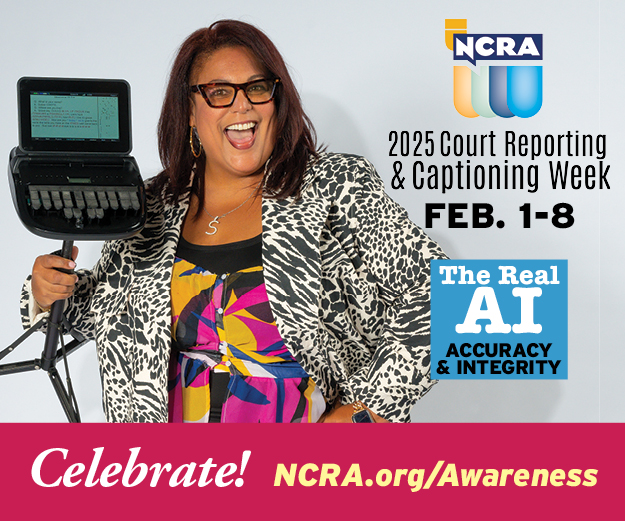The Tools Every court reporting Expert Must Have in 2025
The Tools Every court reporting Expert Must Have in 2025
Blog Article

The Future of Court Coverage: Developments and Trends Forming the Industry
As you explore the future of court coverage, you'll discover a shift driven by technology and innovation. Real-time transcription and AI applications are improving how legal procedures are documented. With remote depositions getting grip, the landscape is progressing swiftly. It questions about the function of court reporters and the abilities they'll need moving on. What does this mean for experts in the area? The answer could shock you.
The Effect of Expert System on Court Reporting
As man-made intelligence proceeds to evolve, it's improving the landscape of court coverage in means you might not anticipate. AI can analyze huge amounts of legal text, assisting you identify relevant precedents and streamline instance preparation.
Moreover, AI can boost the prep work procedure by using anticipating analytics, which can aid you prepare for test outcomes based upon historical information. This isn't simply regarding changing work; it has to do with augmenting your abilities. With AI managing regular tasks, you can concentrate a lot more on your core duties, such as making sure precision and offering essential legal insights. Accepting these adjustments can place you as a forward-thinking professional in a changing market.
Real-Time Transcription: Enhancing Precision and Performance
Real-time transcription has reinvented the court reporting process, making it less complicated than ever before for you to record exact documents instantly. With innovative technology, you can now offer instant records throughout hearings or depositions, guaranteeing that all events have access to vital information right away. This immediacy not just boosts the general efficiency of the lawful procedure but also allows you to focus on the discussion, instead than rushing to capture up.
By welcoming this advancement, you're not just enhancing your process; you're setting a brand-new standard in court coverage that focuses on accuracy and effectiveness. This forward-thinking technique settings you at the center of the developing legal landscape.
The Increase of Remote Depositions

With the growing need for versatility in legal proceedings, remote depositions have become a game-changer in court coverage. You can currently take part in depositions from anywhere, removing travel time and expenses. This ease permits you to concentrate on what really matters-- preparing your case.
Remote depositions use advanced technology, making it possible for real-time interaction and paper sharing. You can involve with witnesses and lawyers flawlessly, making specific that every person stays linked no matter their physical place. This strategy not just saves time but likewise expands your pool of expert witnesses, as geographical barriers come to be less of an issue.
As remote depositions gain popularity, it's important to adjust to this brand-new norm. Acquaint on your own with the needed devices and protocols to guarantee a smooth experience - court reporting. Accepting this innovation can provide you an one-upmanship, permitting you to browse the ever-evolving landscape of lawful procedures successfully
Digital Courtrooms: Changing the Lawful Landscape
As you enter the world of electronic court rooms, you'll discover just how virtual hearing modern technology is reshaping lawful process. This shift not just makes accessibility easier yet likewise enhances transcription accuracy, ensuring every word is recorded properly. Accepting these innovations can substantially improve the performance of the legal procedure.
Virtual Hearing Technology
While the standard court setup has long been a sign of justice, the increase of online hearing technology is reshaping just how lawful process are performed. In addition, digital hearings can enhance participation, enabling witnesses and experts to offer statement without the restrictions of place. As you adjust to these changes, you'll notice that virtual hearings preserve the stability of the lawful process while accepting development, inevitably changing the means justice is served in the modern globe.
Improved Transcription Precision
Enhanced transcription precision is transforming the legal field, making court proceedings extra trusted than ever before. With advancements in speech acknowledgment technology and AI-driven tools, you can expect to see a considerable decrease in transcription mistakes. These innovations not just record every word spoken but additionally make up subtleties in tone and context, boosting total understanding. Consequently, important information aren't lost in translation, ensuring that the stability why not try this out of the lawful process is preserved. Real-time transcription permits you to gain access to exact records instantaneously, promoting smoother interaction throughout trials. Embracing these innovations implies you're entering a future where quality and accuracy in lawful paperwork are extremely important, ultimately profiting all parties included in the judicial system.
The Role of Court Reporters in Virtual Hearings
Court reporters play an essential duty in virtual hearings, ensuring that every word talked is accurately recorded and recorded in real-time. As a court reporter, you assist in communication between celebrations, making complex lawful proceedings obtainable. Your competence in lawful terminology and the capability to quickly adapt to different audio speakers are vital in this digital setting.
Throughout virtual hearings, you keep an unwavering focus, also amidst technical obstacles or interruptions. You give a clear, written record that can be referenced later on, aiding judges, attorneys, and clients comprehend the proceedings. Your skills in steering various platforms guarantee that you can perfectly integrate right into any virtual arrangement.
Moreover, you likewise aid maintain the honesty of the judicial procedure, confirming that every participant's voice is listened to. By doing this, you not just boost the performance of legal process yet additionally add to the general fairness and transparency of the justice system.
Innovations in Paperwork and Record Maintaining
As innovation develops, advancements in paperwork and record maintaining are transforming how stenotype reporter catch and handle lawful records. You'll find that digital tools enable for quicker and more precise transcription, minimizing the chances of human mistake. Cloud-based storage space options enable you to firmly store and gain access to documents from anywhere, making partnership with lawful teams smooth.
Fabricated intelligence is additionally playing a considerable function, helping with real-time transcription and also supplying wise editing functions. These developments not only boost performance however additionally assure that you can give premium documentation in a busy lawful atmosphere.
Additionally, the combination of this link voice recognition software improves the process, allowing you to concentrate more on the subtleties of the procedures rather than simply inputting. By accepting these advancements, you're positioned to raise your abilities and fulfill the needs of contemporary court reporting effectively.
Future Skills and Training for Court Reporters
While technology improves the landscape of legal procedures, it's important for court press reporters to adjust by obtaining new skills and training. You'll need to familiarize yourself with sophisticated transcription software and electronic reporting devices to remain affordable. Accepting synthetic intelligence and real-time captioning will enhance your effectiveness and accuracy.
Additionally, developing strong study and logical skills is vital. You'll usually experience complex legal jargon and treatments, so understanding legal concepts will certainly hone your reporting. On the internet programs and workshops can supply useful understandings into these locations.
Connecting with various other professionals will certainly additionally aid you remain updated on market patterns. Joining see this here companies or going to seminars can expose you to new modern technologies and ideal methods.
Finally, developing your interpersonal skills will boost communication with attorneys and clients. By focusing on these locations, you'll position yourself for success in the evolving field of court coverage.
Often Asked Questions

What Credentials Are Required to Become a Stenotype Reporter Today?
To end up being a stenotype reporter today, you'll require a secondary school diploma, specialized training in court coverage, and qualification, often with a national exam. Solid keying abilities and focus to information are essential for success.
Just How Can Court Reporters Remain Updated With New Technologies?
To stay updated with brand-new innovations, you should attend workshops, sign up with specialist companies, and register for appropriate magazines. Connecting with peers and taking part in online discussion forums can additionally keep you educated regarding the current improvements.
What Is the Typical Salary for Court Reporters Currently?
The typical income for stenotype reporter varies by area and experience, yet you can expect around $50,000 to $70,000 yearly. In some areas, experienced reporters can earn a lot more, especially with specialized skills.
Are There Work Opportunities for Court Reporters in Non-Legal Fields?
Yes, there are work possibilities for stenotype reporter in non-legal fields. You can find functions in closed captioning, transcription solutions, and media, where your skills in capturing talked language are extremely valued and demanded.
Exactly How Does Court Reporting Differ in Different Nations?
Court reporting varies significantly throughout nations. You'll find distinctions in terminology, technology, and legal systems. Some countries highlight digital coverage, while others still rely on standard stenography approaches for catching spoken words.
Report this page